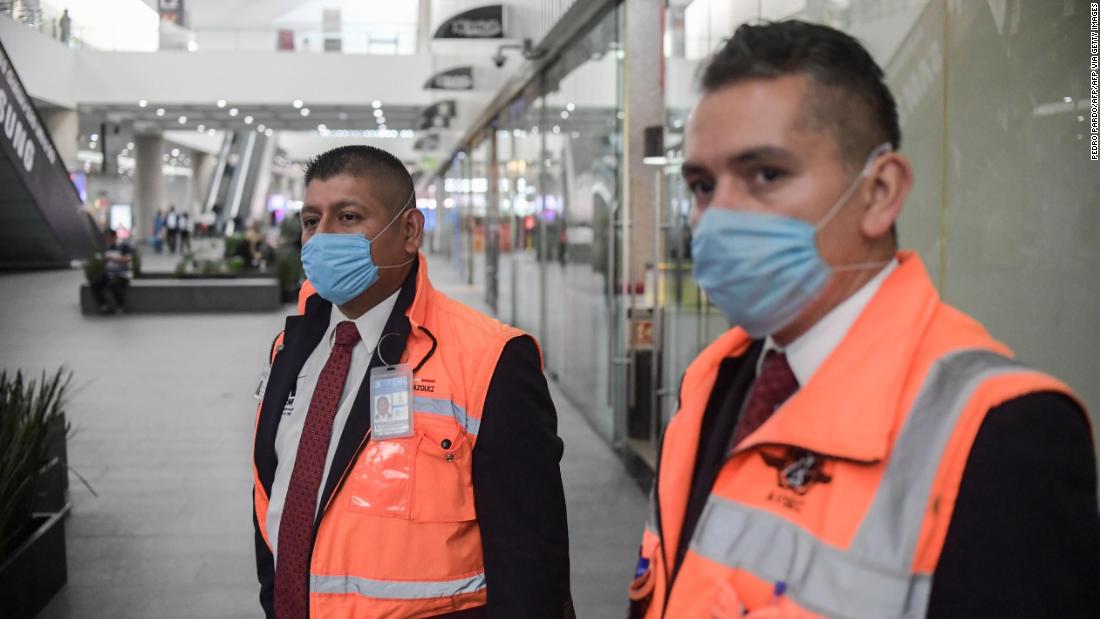Products You May Like
(CNN) — The shock announcement that the United States is suspending travel into the US from 26 European countries in a bid to halt the spread of novel coronavirus increases the global restrictions on worldwide travelers.
Below are the restrictions in place at some key destinations. We’ll be expanding this story with more country details shortly.
United States
The US ban only applies to the 26 countries in the Schengen Area free movement zone: Austria, Belgium, Czech Republic, Denmark, Estonia, Finland, France, Germany, Greece, Hungary, Iceland, Italy, Latvia, Liechtenstein, Lithuania, Luxembourg, Malta, The Netherlands, Norway, Poland, Portugal, Slovakia, Slovenia, Spain, Sweden and Switzerland.
The island nations of UK and Ireland are not included in the ban, despite there being COVID-19 cases in both countries.
Trump said Wednesday that there would be “exemptions for Americans who have undergone appropriate screenings.”
The US already has other restrictions in place.
Passengers who’ve been in China and Iran in the last 14 days will not be allowed to enter.
US citizens who’ve been in China in the past 14 days can enter the US, but will be directed via one 11 airports where they’ll undergo health screening. The airports include Atlanta, Chicago, Dallas, Detroit, Honolulu, Los Angeles, New York (JFK or EWR), San Francisco, Seattle and Washington.
Australia
Despite speculation on Thursday that, following the move by the United States, Australia would follow suit and widen its travel restrictions to Europe, it wasn’t the case.
Passengers who have transited through or been in China in the last 14 days are not allowed to enter or transit through Australia. This does not apply to airline crew, Australian nationals and their immediate family members, or New Zealand nationals resident in Australia.
Passengers who have been in Iran, South Korea or Italy this month are not allowed to enter Australia for 14 days, from the time they exited those respective countries.
This does not apply to Australian nationals, permanent Australian residents, or their immediate family members, who are instead required to self-isolate for 14 days.
China
On Wednesday, Beijing announced a 14-day mandatory quarantine on all international travelers arriving in the Chinese capital.
Meanwhile, international business travelers will be required to stay at a select number of designated hotels in Beijing where they will be tested for the virus. They will not be allowed to leave until their test results have been returned.
Countrywide, passengers arriving from Iran, Italy, Japan or Korea and traveling to Beijing, Guangzhou, or Shanghai are subject to quarantine for 14 days.
Hong Kong
Passengers who have been in or through South Korea or China’s Hubei Province in the past 14 days are not allowed to enter Hong Kong, and neither are Chinese nationals with a passport issued in Hubei.
Hong Kong nationals and residents are exempt. Instead, they face a 14-day mandatory quarantine.
Passengers arriving from or having been in China, Iran or Italy’s Emilia-Romagna, Lombardy and Veneto regions in the past 14 days are subject to the quarantine.
Starting March 14, this will be extended to passengers who’ve been in France (Bourgogne-Franche-Comte and Grand Est), Germany (North Rhine-Westphalia), Italy, Japan (Hokkaido) or Spain (La Rioja, Madrid and Pais Vasco).
Passengers who have been in China, Iran or Italy’s Emilia-Romagna, Lombardy and Veneto regions are not allowed to enter if their permitted stay in Hong Kong is less than 14 days. Hong Kong passport-holders are exempt.
India
India is now suspending all tourist visas and enforcing a 14-day quarantine on all travelers, including returning Indian nationals, arriving from or having visited China, France, Germany, Iran, Italy, South Korea and Spain.
Italy
Passengers arriving as tourists are not allowed to enter via airports in the following areas: Alessandria, Asti, Lombardy, Modena, Novara, Padova, Parma, Pesaro and Urbino, Piacenza, Reggio Emilia, Rimini, Treviso-Venice, Verbano-Cusio-Ossola and Vercelli.
Japan
Japan is banning entry on passengers who have been in affected regions of China, South Korea or Italy within the last 14 days. Japanese nationals are exempt, as are their spouses and children, if the relations are verified.
Sri Lanka
The Sri Lankan government announced Thursday a cancellation of visas on arrival, but it has not yet been confirmed when this will be put in force. Passengers arriving from Italy, Iran and South Korea will be quarantined for 14 days.
South Korea
Visitors who have been in China’s Hubei Province in the past 14 days, and passport holders from that region, are not permitted entry.
Korean visas issued by the Wuhan Consulate in the Hubei Province are invalidated, as are visas issued to nationals of Japan (at Korean Diplomatic Missions in Japan) before March 9, 2020. This does not apply to airline crew.
Joshua Bergliner, Stephen Collinson, Madeline Holcombe and Mia Alberti contributed to this report

